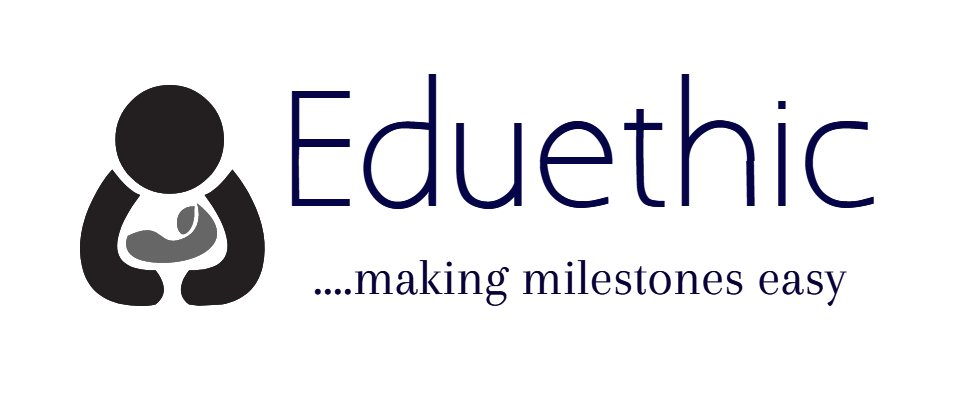Bachelor of Design in Textile Design Top Colleges, Syllabus, Scope and Salary
Unleash your creativity with a Bachelor of Design in Textile Design. Explore fabrics & patterns for a vibrant career in fashion and interiors!

B.Des. in Textile Design is a 3-year full-time undergraduate course divided into 6 semesters. The course covers an advanced study of the concepts and processes of textile designing, such as:
- Design-related trends like embroidery, prints, weaving, and colouring.
- Design combination using technology and computer application.
- The vital role of creativity and innovation in the discipline.
- Use of traditional, analogue, and digital techniques for textile-making.
- The constantly evolving hybrid of technical technologies and craft-based skills include hand embroidery, knitting, laser-cutting, and screen-printing.
- Intricacies of digital print, smart textiles, and advanced digital knitting.
- Innovative and synergetic approaches to design for diverse sectors of the textile industry, markets, and the social sector.
- Cultural heritage, socio-economic, and environmental concerns impacting and influencing textile use.
- Prototype development through various stages of explorations and subsequent refinement.
- Textile-designing skills are imparted as theoretical knowledge and practical exposure.
- textile fibers, woven fabric, surface design, printing methods, dyeing techniques, sewing techniques
- Constructed textiles and primary inputs in garment design.
The program has been designed to impart to eligible candidates advanced learning in:
- Complex design projects, with inputs from social sciences, trends, fashion, technology, and computer-aided design.
- Brand identity is for designing textiles for the apparel and furnishing industries.
- Interdisciplinary projects, like designing textiles for:
- Public Spaces
- Exhibitions
- Interiors
- Automobile industry, etc.
- All industrial and craft production levels through field visits and industry training.
- Design-related research methodologies through fieldwork.
- Society's cultural issues that impact design.
Such graduates can seek numerous gainful employment opportunities in the textile manufacturing industry differentiated by a wide range of materials, products, and markets. For instance,
- As designer-entrepreneurs, they can establish their own companies in textile and fashion.
- They can professionally work on social-developmental projects.
India's average annual course fee ranges between INR 50,000 and 3 lakhs, depending upon the institute offering the course. The average annual salary offered to successful course graduates in India ranges between INR 2 and 10 lakhs, depending upon the candidate's expertise and experience in the field.
BDes Product Design: Course Highlights
|
Course level |
Graduate |
|
Full form |
Bachelor in Design (Product design) |
|
Duration |
4 years |
|
Examination Type |
Semester wise |
|
Admission Process |
Merit or entrance exam based |
|
Course Fee |
INR 45,000 to 1,35,000 |
|
Average salary |
INR 4,50,000-5,00,000 |
|
Top Recruiting Companies |
Pratilipi, Monster India, Toppr, Adobe, Upgrad, Whitehat Jr., FLipkart, etc |
|
Job Positions |
Lead product designer, Product Manager,Product Engineer etc |
B Des. in Textile Design: What is it About?
The program has been designed to offer eligible candidates advanced learning in:
- Creation and functional utilization of various textiles.
- Extensive application of textiles in the fashion industry.
- Creation and design of different types of fabrics.
- Design and development of textile sculptures, textiles, or constructed textiles.
- The history of textiles and the theoretical concepts of aesthetics and touch underlie the field.
- Technical knowledge and creative sophistication.
- Development of a relevant attitude of visual investigation.
- Execution of projects from design-based research
- intricacies, concepts, design development processes, and fabric printing and production.
Why Study BDes Product Design?
- A product design course emphasizes creating innovative ideas for designing and refurbishing a product that can be saleable in the market.
- Career prospects in the design sector are increasing yearly and are considered of paramount value in every industry segment today.
- The domestic design industry is surging high, especially in the last two decades, at a phenomenal speed.
- Today, the course provides one of the strongest platforms to portray your innovations to get considerable success and fame with high pay packages in the industry.
Admission Process
Most institutes in India offering the course admit students based on their performance in a relevant entrance test. Some institutes also admit students based on the candidate's obtained merit at the 10+2 level, while some conduct their entrance tests to offer admission. The admission process generally varies across colleges.
Some such entrance exams conducted in India for admission to the course are:
- Common Entrance Examination for Design
- National Council for Interior Design Entrance Exam
- National-level Entrance Aptitude Test (NLAT)
- NID Entrance Test, NIFT Entrance Exam.
Eligibility for B. Des. in Textile Design
Candidates wishing to apply for the course need to fulfill the following eligibility criteria
- 10+2 qualification in any stream, completed from a recognized educational Board.
- A minimum aggregate score of 50% (45% for SC/ST/OBC candidates) at the 10+2 level.
- Candidates awaiting their 10+2 examination results are also eligible to apply provisionally.
Entrance Exams
|
Exam Name |
Exam Date |
|
UCEED |
January 21, 2024 |
|
CEED |
January 21, 24, 2024 |
|
UID Design Aptitude Test |
To be Announced |
|
NID Design Test (Main) |
April 27 and 28, 2024 |
|
AIEED |
To be Announced |
|
GLS Institutes of Design DAT |
To be Announced |
B. Des. in Textile Design: Syllabus
|
Semester I |
Semester II |
|
English |
English |
|
Applied science I |
Physiology |
|
Applied science II |
Nutrition food science |
|
Entrepreneurship |
Resource management |
|
Life span development |
Environment studies |
|
Textile science |
Practical |
|
Practical |
NA |
|
Semester III |
Semester IV |
|
Current concerns |
Family dynamics |
|
Extension for development I |
Fabric ornamentation |
|
Nutrition for life span |
Textile science |
|
Art design |
Basic fashion illustration |
|
Practical |
Basic of pattern making |
|
- |
Garment grading |
|
- |
IT in textile science |
|
Semester V |
Semester VI |
|
Traditional textiles |
Textile garment quality control |
|
Textile chemistry |
Fabric manufacture |
|
Fashion apparel design |
Fundamentals of apparel merchandizing |
|
Principles of management |
Theory of knitting |
|
Garment production management |
Professional application textile science |
|
Recent advances in textile science |
- |
Career Prospects
Textile design, as an integral part of the fashion industry, is a promising and remunerative career option, owing to:
- Increasing popularity of fashion.
- It is included as an academic discipline in various premier institutions of India.
- Its role in addressing the growing needs of Indian textile products in both domestic and international markets.
- Its expansion and relevance across both surface design and structural design.
- Growing relevance in the present-day society of woven fabric and texture-based print, like embroidery designs.
- Growing market potential of textile products.

















